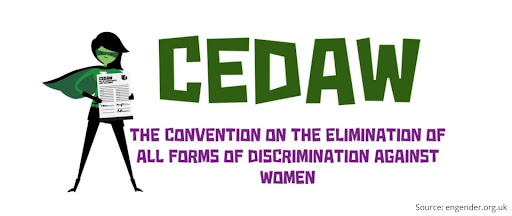Oral Statement of the Dutch CEDAW Network
CEDAW session 81st session PSWG on Monday, 5 July 2021
Thank you, Madam Chair, distinguished members of the Committee,
Today I have the honour to address you on behalf of the Dutch CEDAW
Network, representing the 76 Dutch NGOs that submitted a joint shadow
report for the 7th CEDAW review of the Netherlands.
Our shadow report shows a deep concern that gender neutrality seems
to be the default in Dutch policy-making. We have observed that this
causes issues and communities to be ignored, made invisible, or even
results in counterproductive effects.
Consulted NGOs think the Netherlands will no longer be able to uphold
and deliver on its progressive image, when not fully committing to an
at least gender sensitive, but ideally gender transformative and gender
just lens. During the outbreak of the COVID-19 pandemic, unlike the rest
of the world, Dutch data did not show an increase of domestic violence.
Was our country truly the only in the world where this shadow pandemic
did not hit? NGOs doubt that.
What happens in the world, and what the government decides on, does
not have ‘neutral’ effects, but the government fails to recognise this
by not performing gender assessments. We note that austerity measures
such as cutbacks in legal aid disproportionately affect especially women
from marginalised groups. This has serious consequences.
Has the Netherlands become safer for women – or not? This question
occurred when during the COVID-19 pandemic we noted an increase in
extreme violence against sex workers. Despite their position as legal
workers and tax payers, they were not eligible for emergency aid and
were forced to work in dangerous, illegal conditions. NGOs also noted a
serious increase in sexual intimidation and hate speech against women –
and especially against black, migrant, refugee, muslim and LBTI+ women
-, which only sparked a lukewarm response from the government.
Recently, a new call for emancipation subsidy policy was issued. It
has been designed in the same way as before, despite the fact that
recent experience showed that it almost completely excludes
organisations representing marginalised women. Or, to only have them
participate under the ‘guard’ of large, institutionalised organisations.
This doesn’t contribute to bringing all relevant voices to the table,
or even acknowledging them as equal partners.
We would like to conclude with our concerns over how serious the
implementation of the Convention is taken in the Kingdom, including the
recent general recommendation on climate change.
Our words and actions have the power to transform, and together, we must deliver on this truth.
Thank you. We look forward to answering your questions.
